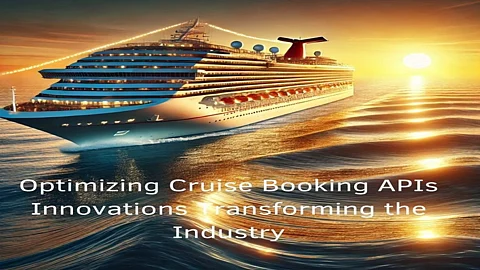

Improving API performance in an ever-changing digital world has become the need of the hour to promote efficiency and user experience. Jayaram Bhogi, a passionate travel technology researcher, delves into pioneering developments in API optimization for the cruise booking sector. He is particularly interested in streamlining system performance to integrate multiple transactions and intricate integrations effortlessly. By improving response rates and scalability, his research provides smooth operations, allowing companies to provide better booking experiences.
Today's cruise booking platforms handle millions of requests every day, especially when booking volumes reach their peak. Such platforms need to coordinate real-time inventory across multiple distribution channels, handle complex fare schemes, and facilitate third-party integrations. One transaction alone usually involves several services such as inventory management, payments, and customer relations management, so performance optimization becomes important.
Conventional monolithic designs typically find it challenging to meet the high load requirements of cruise booking. The implementation of microservices and asynchronous processing has greatly increased system performance. With the utilization of event-driven architectures, cruise booking websites can now process more than 500,000 distributed events per hour, lowering the latency of processing by as much as 72% from legacy systems. Such innovation provides a smoother experience despite peak hours.
API performance is also enhanced by smarter request batching. Sophisticated AI-based algorithms scrutinize request patterns and batch them optimally, eliminating up to 85% of unnecessary API calls. This minimizes system stress and maintains response times below 150 milliseconds and is done through the following measures that lower server load by almost 67% by streamlining database interactions, allowing for better scalability.
The uncertainty of travel reservations requires dynamic load balancing techniques. Contemporary systems utilize AI-driven auto-scaling mechanisms that predict traffic surges and change resource allocation within seconds. The systems guarantee response times of less than 200 milliseconds even at peak load hours to ensure uninterrupted service.
Effective data retrieval is paramount in cruise reservations, where customers expect real-time data. Sophisticated caching techniques, including edge caching, application-level caching, and database caching, have significantly enhanced API performance. AI-optimized caching cuts database queries by as much as 89%, resulting in quicker response times and improved system stability. Predictive caching methods further reduce cache misses, enabling seamless transactions during peak hours.
Effective data handling practices are responsible for cruise API performance optimization. Contemporary microservices architectures now employ optimized data serialization methods that shrink payload sizes by as much as 76%. In addition, AI-based query optimization enhances execution rates by 82%, increasing the system responsiveness while keeping data intact.
API integrations in the cruise sector demand advanced architectures to support various user groups. Event-driven and microservices-based integration patterns have enhanced system responsiveness by 43%, and errors in integration have been reduced by 58%. Such advanced methods optimize partner connections, cutting development time by as much as 60%
As online transactions grow, security continues to be at the forefront. APIs for booking cruises today use multi-level security systems such as OAuth 2.0 authorization and JWT tokens. Such implementations authenticate more than 200,000 tokens hourly with response times under 100 milliseconds. Automatic input validation and API gateways have decreased security vulnerabilities to prevent 99.5% of possible DDoS attacks.
Cruise booking websites are adopting agile practices in order to meet changing travel needs. Shorter development cycles enable ongoing improvements, decreasing development expenses by 35% and speeding up time-to-market by 42%. Agile teams identify and fix problems 68% quicker, making the APIs run efficiently and flawlessly.
An effective monitoring system is necessary for API performance. Cruise systems utilize multi-layer monitoring techniques that scan more than 100 performance indicators each day. These indicators monitor latency, traffic, and error rates to make proactive system changes. AI-powered real-time alerts have cut false-positive error notifications by 75%, enabling teams to fix critical issues better.
Comprehensive API documentation is central to smooth integrations. Cruise booking sites now leverage interactive documentation tools, which enable developers to test endpoints in real-time. These breakthroughs have decreased integration time by 75% and reduced support tickets by 62%. These advances promote wider adoption and innovation in the industry through streamlined onboarding.
In summary, Jayaram Bhogi brings to light how API innovations revolutionize the cruise booking sector. Intelligent request batching, asynchronous processing, and dynamic load balancing optimize performance and reliability. Agile principles and real-time monitoring guarantee flexibility to market demands to provide smooth, high-performance booking processes to travelers across the globe.
